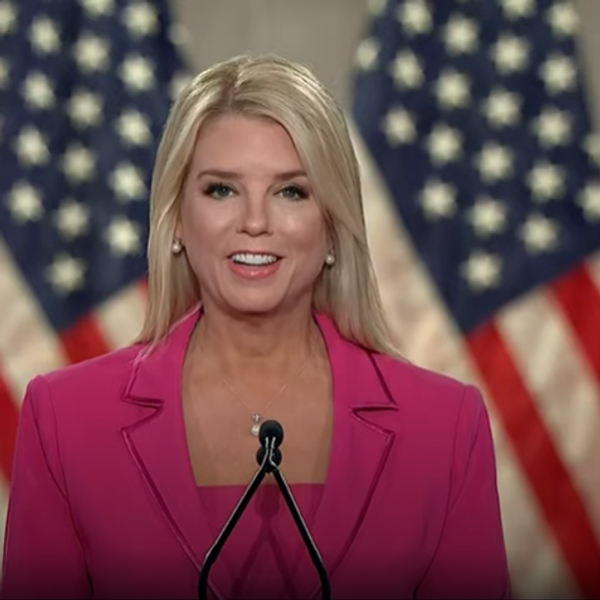5 CBO Findings About Improving The Economy That Republicans Will Always Ignore

Republicans celebrated a new report from the Congressional Budget Office this week that said raising the minimum wage to $10.10 could cost the economy 500,000 jobs.
Our Joe Conason hollowed out the arguments the right uses against raising wages for America’s lowest-paid workers. Richard Trumka — head of America’s largest labor union, the AFL/CIO — encouraged Democrats to ignore the report and “prove the CBO wrong.” Cook Political Report‘s Amy Walter points out that the report will do little to help Republicans case because “more Americans simply think that a rise in the minimum wage is a good thing for the economy.”
President Obama confirmed that the issue still tops his party’s agenda in a Friday morning speech to Democratic governors, where he said the issue is good policy and good politics, noting that New Jersey voters approved an increase even while electing a Republican governor in a landslide.
However, since Republicans are suddenly listening to what the CBO is projecting, here are five other findings from the non-partisan organization that offer a pretty simple path to growing the economy while reducing the deficit.
Photo: Speaker Boehner via Flickr
Raise 900,000+ Out Of Poverty By Raising The Minimum Wage
Also in the CBO report that split the difference between liberal economists to say raising the minimum wage would cost no jobs, and conservatives who say it would kill a million jobs, was this testament to the power of raising wages:
Real income would increase, on net, by $5 billion for families whose income will be below the poverty threshold under current law, boosting their average family income by about 3 percent and moving about 900,000 people, on net, above the poverty threshold (out of the roughly 45 million people who are projected to be below that threshold under current law).
Moving people out of poverty is a newfound passion for so-called conservative “reformers,” even though most of their plans involve cutting programs that keep people out of poverty. By raising the minimum wage, the dignity of work is encouraged while slimming an implicit government subsidy for corporations that underpay their employees. Who’s against that?
Photo: The All-Nite Images via Flickr
Pass Immigration Reform To Reduce The Deficit
Despite the massive spending it includes for a “border surge,” the bipartisan immigration reform bill that passed the Senate would reduce the deficit by $158 billion over the 2014-2023 period, which is more than implementing “chained CPI” to reduce the growth Social Security benefits would save, Salon‘s Brian Beutler points out. But that’s just the beginning. In the decade beginning in 2024, the bill would shrink the deficit by $685 billion.
Photo: Anuska Sampedro via Flickr
Extend Emergency Unemployment Benefits
Republicans still refuse to do what they helped George W. Bush do five times: extend emergency unemployment benefits. This cost of this inaction is 200,000 jobs, according to the CBO.
And if the CBO says it, it must be true! Right?
Photo: Wisaflcio via Flickr
Give Up Obamacare Repeals To Reduce The Deficit And Unemployment
Democrats worked overtime to make sure the Affordable Care Act isn’t just fully funded, but actually shrinks the deficit. To do this, they reduced the amount of subsidies that help middle-class workers afford coverage. Despite this, Republicans still pretend that it makes the deficit worse.
However, the CBO is there to remind them that the GOP’s more than three-dozen attempts at repeal won’t just deprive 13 million of health insurance — the number of Americans who will gain coverage this year, according to the CBO — it will increase the deficit:
What Is the Impact of Repealing the ACA on the Federal Budget?
Assuming that H.R. 6079 is enacted near the beginning of fiscal year 2013, CBO and JCT estimate that, on balance, the direct spending and revenue effects of enacting that legislation would cause a net increase in federal budget deficits of $109 billion over the 2013–2022 period.
And guess what? The Affordable Care Act also cuts the unemployment rate, according to CBO director Douglas Elmendorf.
The Stimulus Worked, So Do More Of It!
Republicans decided the stimulus didn’t work even before it went into effect. And despite the fact that nearly all economists believe it reduced unemployment and most believe it was worth it, Republicans have stuck with this story, knowing that the economy George W. Bush left America to contend with was so awful that no politically feasible government action could have blunted it completely.
But we know the stimulus worked because the indisputable experts at the CBO said so.
In 2011, Politico‘s Josh Boak reported on the findings:
The CBO figures released Tuesday estimate that the stimulus package raised the gross domestic product this past quarter by 0.3 percent-1.9 percent.
The CBO report provided a broad range of the estimated number of full-time jobs created because of the stimulus — from a low of 500,000 to a high of 3.3 million jobs.
Instead of insisting on cuts while interest rates are historically low and millions are out of work, Republicans could support programs like those in the American Jobs Act that actually create jobs. I’m sure the CBO would agree.












